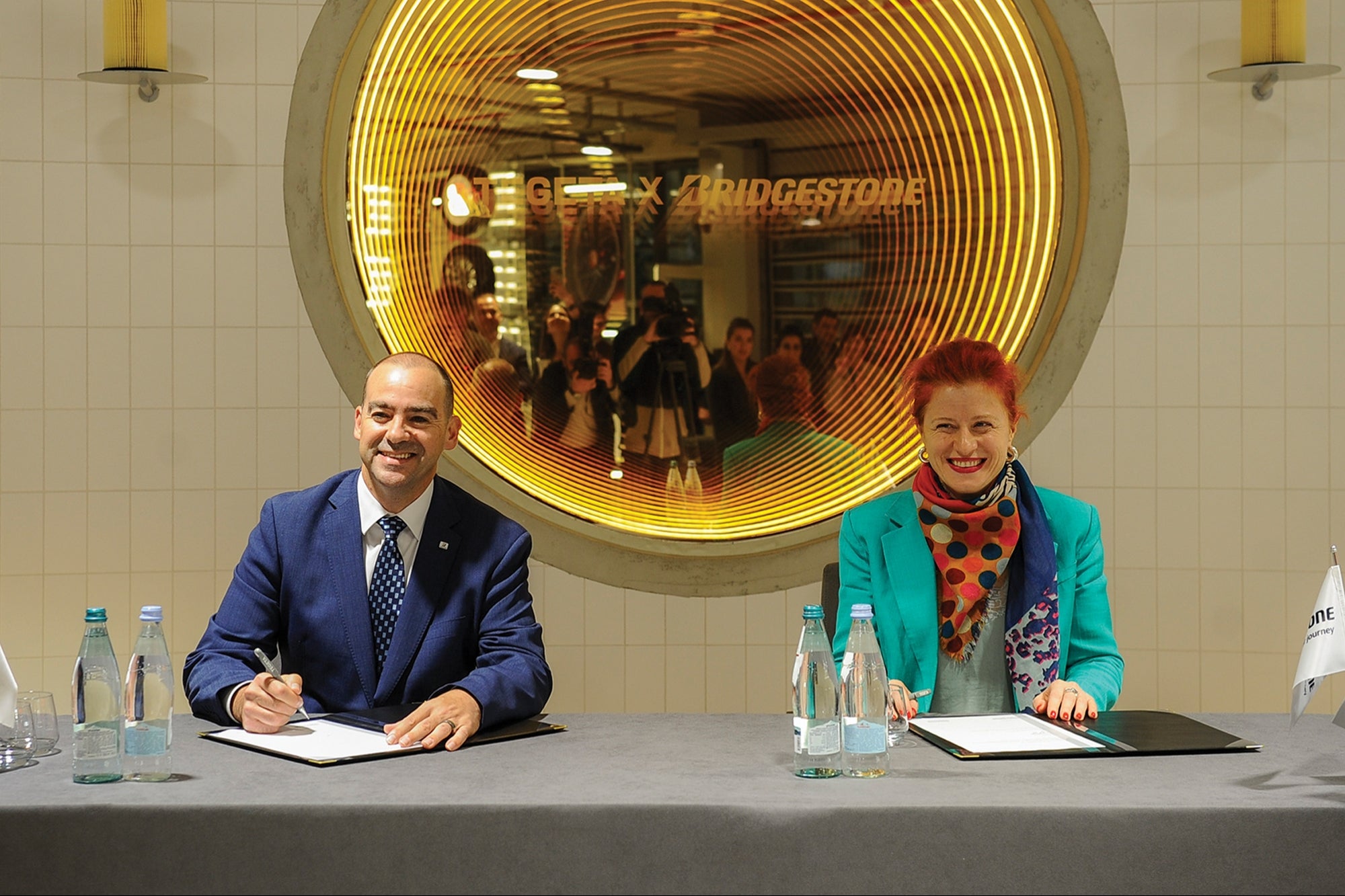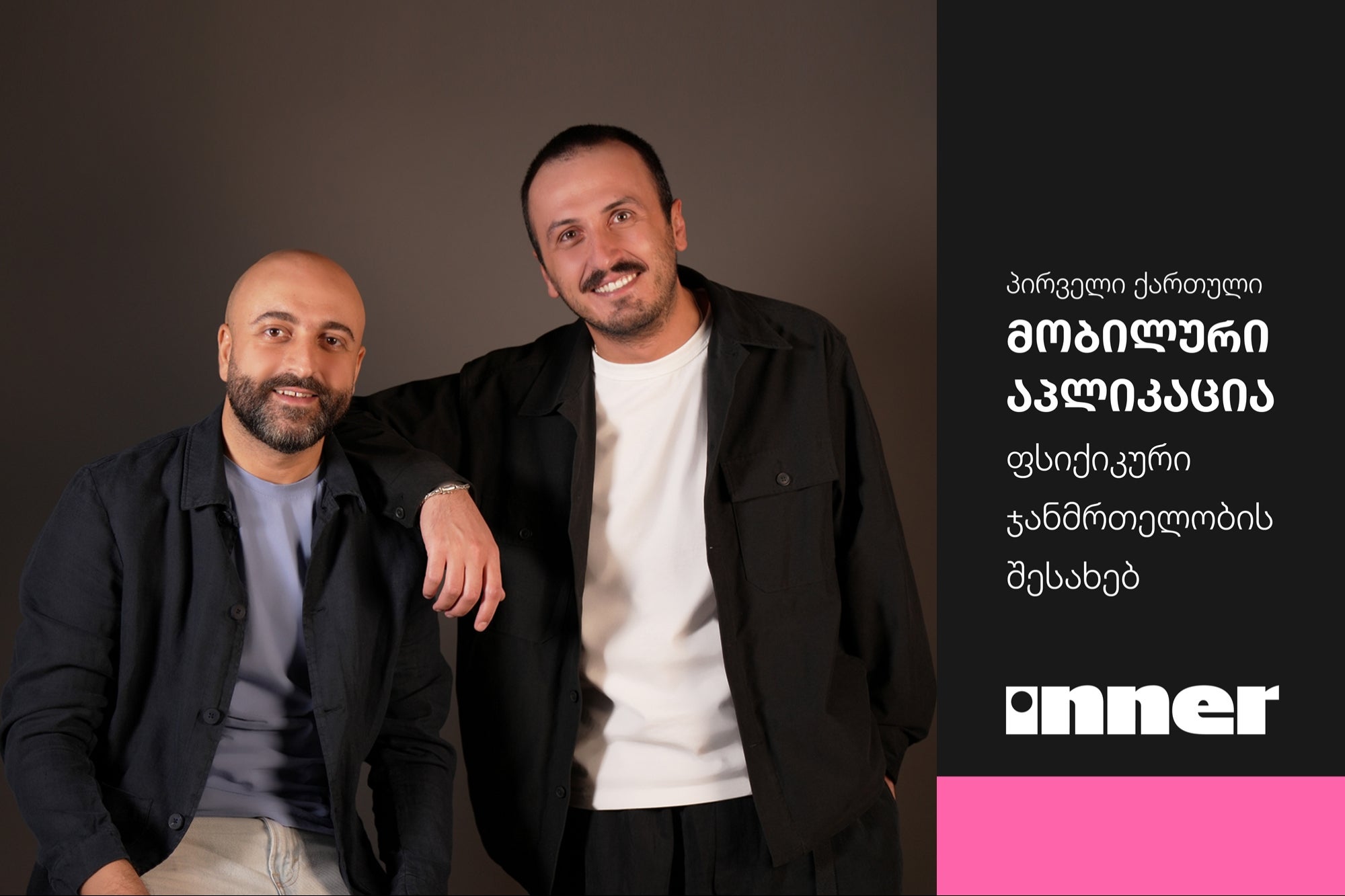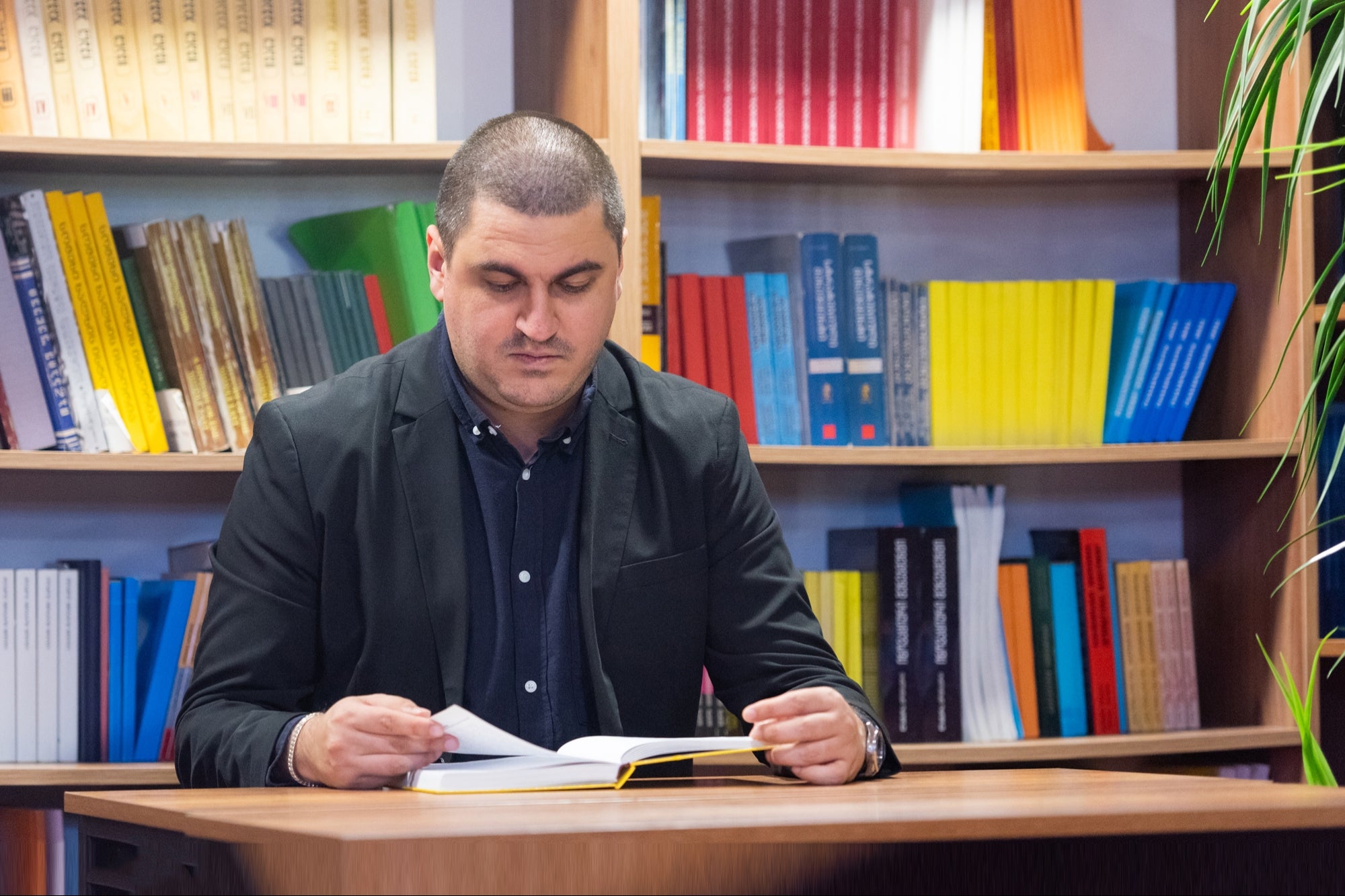The University of Georgia - 20 Years of Opportunities
By თეკლა ადამია
Opinions expressed by Entrepreneur contributors are their own.
You're reading Entrepreneur Georgia, an international franchise of Entrepreneur Media.
 Twenty years have passed since the establishment of The University of Georgia (UG). In 2004, unfazed by the Georgian educational system facing significant challenges and lacking international experience, the University of Georgia opened with just 36 students and three auditoriums. Today, it unites over 9,000 students and more than 7,000 graduates!
Twenty years have passed since the establishment of The University of Georgia (UG). In 2004, unfazed by the Georgian educational system facing significant challenges and lacking international experience, the University of Georgia opened with just 36 students and three auditoriums. Today, it unites over 9,000 students and more than 7,000 graduates!
Offering a unique experience, the university provides students with various opportunities for learning, employment and development, and this is no weak claim – it is backed up by the statistics: 96% of University of Georgia graduates are employed in the private and public sectors of Georgia and around the world, one of the best indicators in the country.
UG offers a multicultural environment for students, with the largest number of international students in the country. Currently, more than 4,600 students from around 70 countries are studying at UG.
After 20 years of development, the University of Georgia has been named the best private university in Georgia and Transcaucasia, a ranking based on Webometrics, uniRank, and UnversityGuru surveys, which annually evaluates the ranking of universities according to the quality of professors, their success in scientific research, and the university's influence in the country. The Webometrics survey includes 31,000 higher education institutions from more than 200 countries, including Georgia.
To find out more about how the journey started for UG, what path was taken over the past 20 years, and which opportunities UG offers students and individuals with academic interest today, Entrepreneur talked to the rector of the university, Konstantine Topuria, who has been with UG for several years and is leading the development there.
"In the early 2000s, the main goal of the founders of The University of Georgia, Manana Sanadze and Giuli Alasania, was to create a Western-type university in Georgia where Georgian students would have the opportunity to receive a level of education equal to that of Europe and the USA," he tells us. "We can confidently say that this goal has been achieved. The University of Georgia is included in the top 20% of universities in Europe and the USA by the European organizations that issue university rankings."
The University of Georgia welcomed its first students in 2004, when it was called the "School of Social Sciences." In 2007, the school added a number of educational programs in various disciplines, and was rebranded The University of Georgia, with the ambition to become the leading university in the country.
"Initially, the university started operating with only three rooms, shared between the library, computer space, auditorium, and university administration. Today, the university owns six buildings in Tbilisi, and the plan is to expand and build an additional university campus," Topuria notes.
The expansion and development of the university's infrastructure became possible with a significant contribution made by the US financial institution OPIC. OPIC finances organizations in the US and abroad when it sees growth opportunities and finds the project attractive to the American side. In 2011, UG received a $12 million project loan from OPIC for infrastructure development.
The University of Georgia has grown due to a distinctive model implemented immediately after its establishment, seeing it focusing on social science programs and prioritizing professional and practicing academic staff.

"The university offered courses that may not have been commercially profitable for the university, but its mission and the higher interest of the country's education system were a priority. From the beginning, the University of Georgia was positioned as an institution with a high quality of teaching," Topuria says.
The University of Georgia values results-oriented quality education. It was the first university to start conducting exams in specially designated spaces and to introduce the method of encoding writings, which excluded the possibility of biased evaluation.
"The foundation of the University of Georgia's 20-year success is the university's outstanding academic staff and innovative and dedicated administrative team, which I am very proud of. We have employees at UG who have been around for more than 15 years, indicating a sustainable organizational culture and a deep sense of cooperation. In addition, our success is linked with each of our graduates and students, who are unofficial ambassadors and faces of the university in various fields," Topuria notes.
The unique opportunity UG offers its students
Today, the University of Georgia combines 36 bachelor's degrees, 31 master's degrees, 11 doctoral degrees, one-year teacher training programs, and two-level programs. Each program offers unique opportunities to gain practical experience through research laboratories and various centers.
Students of the School of Humanities have access to a well-equipped archaeological base in Samshvilde, where, along with the academic staff, they are involved in fieldwork and learn how to process the archaeological material obtained. The students of the architecture division are involved in UG ARCHIPROJECT projects under the mentorship of architecture and interior design lecturers. UG ARCHIPROJECT is an architectural, interior and exterior design company based at the University of Georgia, offering customers the highest quality services.
Students of the School of Social Sciences have the opportunity to gain practical experience at the UG PR Consulting Center, where they work on PR, branding, media relations, event planning, and management projects for companies.
Another exciting option for students is the UG Security Platform (UGSP), which provides space for academic and political discussions on regional security, military, political systems, and regimes. The center constantly holds international conferences and simulation games.
There is an exceptionally diverse range of resources for students majoring in science and technology. The University of Georgia was the first university in Georgia to start implementing Blockchain. The university's Blockchain Lab platform aims to introduce and develop new digital technologies in Georgia, especially in the education system and various practical fields. The Blockchain Lab offers undergraduate and graduate courses in digital technologies.
Another important technology resource is UG Lemondo, which offers complete courses on creating mobile applications for students and budding programmers. The training center is unique, as the university and development company Lemondo are simultaneously involved in teaching. The training is focused on the market demands and allows the aspirants to get both a theoretical and practical education. Notably, The University of Georgia is the first educational center in Georgia to obtain the Apple iOS University Developer Program membership and license.
Learning legal English is vital for any law student, which is why UG offers its students the opportunity to study TOLES, the program provided by the British Center for Legal English.
On its premises, the University of Georgia boasts an independent research institute, GnomonWise, where local and international experts conduct research and work on various reports and analytical documents. GnomonWise promotes the growing role of academia and public engagement in public policy.
'Discover Georgia for UG' and 'UG Startup Factory' are exciting resources for the School of Business and Administrative Science students. The university's tourism program cooperates with the Discover Georgia tourism agency, which operates on the base of the university. It offers employment and internship opportunities to students in the tourism industry. The UG Startup Factory is an entirely new type of flexible innovation center that encourages students, and anyone interested in developing, to implement and turn their ideas into successful businesses. The center cooperates with local and international startup incubator centers and accelerators to bring promising projects to the market. The University of Georgia also has its own investment fund for financing startups.

Practical experience is essential for medical students, which is why The University of Georgia offers such resources as a simulation hospital, a pharmacy, and UG Reavita-Dent. The simulation hospital is a medical laboratory equipped with modern medical-educational simulators, multifunctional mannequins, and medical equipment. Students acquire practical skills in an environment close to the real world. The hospital includes three functional parts: Manipulation rooms, obstetrics and gynecology, and a teaching auditorium. The simulation pharmacy is a simulation base of the pharmaceutical program, where specific tasks are performed, and clinical cases are selected. UG Reavita-Dent is a dental clinic offering students practical and medical skill development.
The university's academic staff is made up of highly qualified, creative, and enthusiastic professionals; leading practicing lecturers who are eager to share their knowledge and skills and pass on the right values to all their students.
International partners and the opportunities they represent for UG students
The University of Georgia's degrees are recognized in Europe and the United States of America, which means that graduates can easily continue their studies abroad. The English-language programs are also recognized by state official institutions and international organizations.
UG makes every effort to offer students a variety of international educational opportunities. The university partners with universities in Great Britain and the United States of America, where students can participate in exchange programs and various academic competitions.
The University of Georgia currently has exchange programs in more than 80 countries, including leading European countries. Both Erasmus Mundus and Erasmus+ programs are active, as are individual collaborations with universities. In addition, different types of international scientific research projects are implemented at the University of Georgia, including the Tempus program funded by the European Union. The purpose of this program is to promote the reform of higher education and develop cooperation in the European Union's partner countries.
Career development opportunities
The University of Georgia runs the Career Development Center, which assists students to find employment that best suits their aspirations. This department oversees each student's career advancement based on their skills and experience. The career development center provides the following services: Training, employment forums, individual consultations, and exclusive information about current vacancies, all available for students and graduates. According to a study conducted on the employment center's annual work, the graduate employment rate is 96%.
The University of Georgia believes that graduates' success and professionalism are due to the university's premier academic standards and the overall efforts dedicated to students' career advancement.
Student Life at UG
The University of Georgia has many international students, which provides the opportunity to study and do business in a multicultural environment. Students have the chance to get to know each other's culture, make contacts, and expand their horizons, further enriching their student life.
"One can find an interesting blend of Western and Eastern cultures here in Georgia. Students can meet representatives of many countries, who will form elites in business, politics and other fields when they return to their own countries. When you study at the University of Georgia, you have the opportunity to create a network of acquaintances around the world. Our goal is just that: For our students and graduates to have contacts in as many countries as possible, allowing them to start or develop a business or other activities in any country," Topuria notes.
 The UG Student Affairs Center focuses on the diversity of student life and manages various cultural events. The center supports establishing and strengthening various student clubs on the university premises. In particular, students have the opportunity to unite around a common interest and form student clubs, discuss specific topics of interest, write projects, and receive financial support to implement their initiatives. The center also offers an opportunity for students to engage in sports of their choosing.
The UG Student Affairs Center focuses on the diversity of student life and manages various cultural events. The center supports establishing and strengthening various student clubs on the university premises. In particular, students have the opportunity to unite around a common interest and form student clubs, discuss specific topics of interest, write projects, and receive financial support to implement their initiatives. The center also offers an opportunity for students to engage in sports of their choosing.
In short, UG is a place where, along with studying, students have fun and create happy memories.
UG students implement various programs to support newcomers, including open door days, individual tours of the university to get to know the environment better, training, professional weeks, and mock exams to prepare for national exams. University services include an internship program, Folio Literary Competition, UG Camps, and a free tuition raffle.
Success stories from UG
Today, the University of Georgia has many successful students who participate in many contests and competitions, both locally and internationally.
One of the university's most impressive achievements was its victory in the International Law Competition. "Georgia has never had an academic group become world champion. In 2019, the University of Georgia law team earned that title, beating such famous universities as Pepperdine Law School and Harvard. It was a great success," Topuria notes.
At the beginning of 2024, the Department of Architecture of the University of Georgia took 39th place in the world and 2nd place in Asia. This success was brought to the university by the students and their projects, who consistently won various competitions.

In the technical direction, the University of Georgia is the only private university in Georgia to have collaborated with CERN. CERN is an international scientific research center, which means that scientists from different countries have the opportunity to participate in extensive experiments of world importance. UG professors who are involved in such types of research, sharing their knowledge and experience with students and allowing them to engage in similar projects.
The University of Georgia as a brand
The University of Georgia, as a brand, offers a variety of opportunities to people at any level of education. The brand unites a university and The UG School, an international school recognized by Cambridge in Tbilisi, whose graduates are awarded a Cambridge certificate and have the opportunity to directly enrol in various universities worldwide.
The University of Georgia also has a professional college offering state-recognized certificate courses to interested individuals. The Georgian-American Film Academy was created based on the example of the New York Film Academy and the Los Angeles Film School, so as to give the students a unique opportunity to master the field of film production in depth, obtain knowledge of the Western standard of film making, and create their own portfolio while being immersed in the real-life filmmaking process.
Culinary Academy Ars-Gusto is a comprehensive culinary school where students can acquire skills and knowledge similar to those of European and American culinary schools.
In February, a branch of the American psychological clinic Medens Health, which oversees mental health, was opened on the base of UG. Psychology students of the university can participate in research programs and gain practical experience there.
UG, as a brand, is well represented by numerous public projects that have been implemented over several years in Georgia. For example, the University of Georgia is engaged in the opening and diversifying libraries in remote areas of the country. The libraries are supplied with modern literature, academic textbooks, professional literature, and exam preparation manuals for university entrants. Students living in remote villages have been provided with internet connections and necessary equipment. The university team often organizes field trips to the regions, where they provide residents free legal and psychological assistance.
Georgia as an educational hub, and UG's contribution
Rector of The University of Georgia, Konstantine Topuria, says he believes that Georgia has the potential to become a regional educational hub, and he highlights the country's competitive advantages which make it possible to achieve this ambitious goal.
"Georgia, as one of the most liberal-democratic countries in the region, has a low crime rate, a rich culture, a moderate climate, good cuisine, and high-quality education, and it ticks all those boxes to attract international students," he says.

He also talks about the impact it would have on the Georgian economy. Becoming an educational hub would improve the quality of and accessibility to higher education, which in turn would increase exports, strengthen the national currency and grow incomes.
In addition to the economic benefit, the UG Rector connects the country's transformation into an international educational hub with its geopolitical future, and considers this notion one of the country's most important roles.
With the direct economic benefits, becoming a regional educational hub may put Georgia back on the map. It would resemble the times when Georgia acted as a corridor, as part of the Silk Road, to transport fuel and other goods, thus enhancing the country's security.
If we trace the continent of Eurasia from east to West, we can clearly see the borders where the USA, during the Cold War, stopped the expansion of the Russian-Chinese communist bloc and created its bases. From extreme East to West, these were Japan, South Korea, Hong Kong, and Taiwan; Indochina countries: Malaysia, Thailand, Vietnam, Singapore; The countries of the Persian Gulf; the countries of the Middle East: Israel, Turkey and Western Europe, in whose economic revival the USA contributed the lion's share, and with the formation of NATO, it ensured its security. This is where the front line of hostilities passed between the Soviet Union and the USA during the Cold War. During the Cold War, this border passed through Berlin, and now this front line has moved to Ukraine and the Caucasus.
Today, the front line of the Russia-West geopolitical confrontation runs over the Caucasus and Ukraine, as, say, it did over Korea in the 1960s. Depending on whose influence prevails, Georgia's outlook will resemble either a desolate North Korea, which the Soviet Union, unfortunately, won there at one time, or one of the "Asian tigers" - South Korea, which has become a springboard for the US.
The Caucasus and Ukraine, like others with US military bases, are separated from the USA by the sea. Due to this geographical landscape, these regions potentially belong to the list of countries and regions where America has strategically established its influence.
Let's look again at the continent of Eurasia. We will notice that all the countries the USA influences have formed or are forming a regional educational hub. They represent the means of influence of the USA on the rest of the continent. Not only Western Europe, which traditionally represented the world's scientific and educational center from the Renaissance era to the Second World War, but also the countries of the South-East and the Far East, which were not distinguished by any scientific or higher educational traditions until the recent past, have become the largest exporters of education in the world today. Singapore, Hong Kong, Japan, South Korea, Malaysia, and Taiwan consistently rise to the top in the world university rankings.
Through educational "magnets," Western influence spreads throughout the Eurasian continent. Such regional educational hubs attract young, competent, objective-minded, and progressive people from the rest of the Eurasian continent. Accordingly, the "Westerners" return and form the core of the USA and Europe in their own countries, and, therefore, we can conclude that establishing any country as a regional educational hub means the victory of the West in the given region.
"The most important thing that might make Georgia interesting for the USA and Europe is its becoming an educational hub," Topuria says.

He says that around 30,000 international students are currently studying in Georgia. With a purposeful, consistent state policy, there is the possibility that this amount will increase even more, since, every year, 20,000 spots in the university remain vacant. Even more, international students are a source of income for universities and the state, contributing to evolving education quality and infrastructure. The University of Georgia is doing its best to contribute to making Georgia just such an international educational hub.










